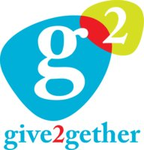Description

Swell

WhosOn
Comprehensive Overview: Swell vs WhosOn
As of my last update in October 2023, Swell and WhosOn might refer to different things, so I'll provide a comprehensive overview based on the general context of platforms and products they might be associated with. If you have specific companies in mind, please provide more details.
Swell
a) Primary Functions and Target Markets
- Primary Functions: Typically, a platform or product named "Swell" could serve a variety of purposes. In the tech world, Swell might be associated with community engagement, survey tools, product feedback, and growth marketing solutions. Its purpose usually revolves around gathering insights, improving customer interaction, and building community-driven platforms.
- Target Markets: The target markets for products with these functions often include small to medium enterprises (SMEs), e-commerce businesses, SaaS companies, and digital marketers aiming to enhance user engagement and gather actionable insights. It might also appeal to customer success teams looking to better understand customer sentiment.
b) Market Share and User Base
- As of the latest data, Swell's market share and user base depend largely on its specific niche. If it is a feedback or community engagement tool, its market presence might be moderate, given competition from other established platforms.
- Growth would be driven by industries keen on listening to customer voices and enhancing product-market fit. Market share would largely be regional or niche-based, determined by its specialization and unique features compared to competitors.
c) Key Differentiating Factors
- Community Focus: If Swell is a community engagement tool, features might include robust discussion forums, collaborative feedback mechanisms, and social integration.
- User Experience: Superior user interfaces and seamless integration with existing platforms are often selling points.
- Insight Tools: Unique analytics or feedback mechanisms that offer deeper insight into user behavior can set it apart.
WhosOn
a) Primary Functions and Target Markets
- Primary Functions: WhosOn is often associated with live chat software and customer engagement tools. Its primary functions typically include real-time customer support, live analytics on website traffic, and customer interaction management.
- Target Markets: Its target markets include customer service teams, e-commerce websites, IT support hubs, and businesses needing enhanced customer interaction tools. Large enterprises as well as SMEs may adopt WhosOn to optimize their online customer service processes.
b) Market Share and User Base
- WhosOn might have a solid presence in sectors that prioritize customer engagement and real-time support. Its user base could range from small businesses to larger organizations, depending on how well it integrates with enterprise systems.
- Its market share would also be contingent upon the competitive landscape of customer service software, which includes giants such as Zendesk and Salesforce.
c) Key Differentiating Factors
- Real-Time Analytics: WhosOn's ability to deliver live insights into web traffic and customer interactions can be a major competitive advantage.
- Integration Capabilities: Seamless integration with other business tools, CRMs, and social media platforms might make it an attractive solution for diverse businesses.
- Tailored Customer Engagement: Features like automated responses, personalized communication, and comprehensive customer journey tracking can distinguish it from simpler live chat solutions.
Comparative Analysis
-
Market Focus: While Swell may be more focused on community and feedback dynamics, WhosOn appears more oriented towards customer service and real-time engagement.
-
User Interaction: Swell might emphasize asynchronous communication and feedback collection, whereas WhosOn provides synchronous communication features through live chat.
-
Application Scope: Swell's applications could spread across marketing and customer success, while WhosOn might largely target customer support and service efficiency improvements.
Ultimately, both products serve distinct yet occasionally overlapping market needs, with their adoption and market share heavily reliant on their specific capabilities and integration efficiencies.
Contact Info

Year founded :
2016
Not Available
Not Available
United States
Not Available

Year founded :
2003
Not Available
Not Available
United Kingdom
Not Available
Feature Similarity Breakdown: Swell, WhosOn
As of my knowledge cutoff date in October 2023, I can provide a general overview of the features and comparisons of Swell and WhosOn, assuming they remain similar to their known capabilities. Swell and WhosOn are tools often used for customer engagement, feedback collection, and live chat support. Here's a breakdown:
a) Core Features in Common:
- Live Chat: Both Swell and WhosOn provide live chat functionality that allows businesses to communicate directly with customers in real-time.
- Customer Feedback: They offer mechanisms for collecting customer feedback to gauge satisfaction and improve service delivery.
- Analytics and Reporting: Both platforms offer analytics tools to track usage, customer engagement, and other metrics important for business insights.
- Multi-Platform Support: They support integration across multiple devices and platforms, facilitating seamless customer interaction.
- Customization Options: Both services allow businesses to customize the interface to match their branding and specific needs.
b) User Interface Comparison:
- Swell: Known for its modern and intuitive interface, which is designed to be user-friendly and easily navigable. Swell often emphasizes visual simplicity and ease of use, which can be appealing to users new to customer engagement platforms.
- WhosOn: Offers a robust and detailed interface that might feel slightly more complex due to its extensive range of features and customization options. It caters well to businesses requiring comprehensive live chat solutions with several adjustable parameters.
c) Unique Features:
- Swell:
- Review Generation and Management: Swell focuses heavily on generating and managing online reviews, which helps businesses enhance their online reputation.
- Automated Feedback Requests: Swell provides automation tools for sending feedback requests, simplifying the process for users to continuously collect customer insights.
- WhosOn:
- Advanced Security Features: WhosOn has detailed security measures, including end-to-end encryption and compliance with stringent data protection regulations, which can be critical for industries dealing with sensitive information.
- Extensive CRM Integrations: Offers a wide range of CRM and third-party platform integrations, making it highly connective for businesses with complex IT ecosystems.
- Real-Time Translation: Features capabilities for real-time language translation during chat interactions, which can be very beneficial for companies with a global customer base.
When choosing between these platforms, businesses should consider the specific features that align best with their operational needs, customer interaction strategy, and technical requirements. Keep in mind that product features can change over time, so consulting the latest official product documentation or contacting the vendors for the most current feature set is advisable.
Features

Not Available

Not Available
Best Fit Use Cases: Swell, WhosOn
Swell
a) Best Fit Use Cases for Swell
Swell is an ecommerce platform designed to be highly flexible and customizable, making it a strong choice for:
- Small to Medium-sized Businesses (SMBs): Companies that need a customizable ecommerce solution without the complexity and cost associated with platforms designed for larger enterprises.
- Startups and Entrepreneurs: Those looking to rapidly prototype and launch an ecommerce site with personalized branding.
- Direct-to-Consumer (DTC) Brands: Businesses that require sophisticated inventory and order management capabilities to sell directly to consumers.
- Subscription-based Models: Businesses offering subscription services, as Swell offers built-in support for recurring billing.
- Niche Markets and Unique Requirements: Businesses with specific needs that require custom functionality, thanks to Swell’s flexible API and development ecosystem.
d) Industry Verticals and Company Sizes
- Fashion and Apparel: Highly customizable product pages for a visually driven market.
- Health and Wellness: Supporting subscription models for ongoing product delivery.
- Tech Gadgets: Managing complex inventories and variant options.
- Small to medium-sized businesses benefit from Swell's scalability and customization without the overhead associated with enterprise-level platforms.
WhosOn
b) Preferred Scenarios for WhosOn
WhosOn is a live chat software designed to enhance customer service and engagement, making it ideal for:
- Customer Support-focused Businesses: Companies that prioritize real-time support and need tools to efficiently manage customer interactions.
- Sales-driven Organizations: Businesses that benefit from proactive engagement tools to convert website visitors into leads and sales.
- Companies with High Website Traffic: Businesses that require robust visitor tracking and analytics to understand customer behavior and optimize engagement strategies.
- Industries with Complex Customer Queries: Where real-time support can resolve high-value, complicated inquiries promptly.
d) Industry Verticals and Company Sizes
- Ecommerce: Enhancing sales conversions by providing immediate assistance and answering pre-purchase questions.
- Financial Services: Offering secure and personalized support, essential for managing sensitive financial queries.
- Healthcare: Assisting both patients and professionals with appointment bookings and general inquiries.
- Suitable for medium to large enterprises due to its sophisticated visitor tracking and analytics capabilities, as well as businesses with dedicated customer support teams.
In summary, Swell is ideal for businesses needing a flexible and customizable ecommerce solution, particularly in niche or DTC markets, while WhosOn is best for companies that prioritize customer service and proactive sales conversions, suited to a range of industries including ecommerce and financial services. Each caters to different business sizes, with Swell being more geared towards SMBs and startups, and WhosOn catering to medium and large enterprises.
Pricing

Pricing Not Available

Pricing Not Available
Metrics History
Metrics History
Comparing undefined across companies
Conclusion & Final Verdict: Swell vs WhosOn
To provide a well-rounded conclusion and final verdict for Swell and WhosOn, let's evaluate these products based on their overall value, pros and cons, and offer specific recommendations for prospective users choosing between them.
a) Best Overall Value
Considering all factors such as features, price, user experience, and support, the best overall value depends on the specific needs of the user. If the priority is advanced customer engagement features and seamless integration with existing business systems, one might offer better value over the other. However, it's crucial to assess which platform aligns better with the user's specific requirements in terms of scalability and business goals.
b) Pros and Cons
Swell Pros:
- User-Friendly Interface: Swell is often praised for its intuitive design that simplifies customer engagement and feedback collection.
- Customization Options: Offers a range of customization features that allow businesses to tailor the platform to their needs.
- Integrated Marketing Tools: Provides integrated offerings that help businesses boost customer interaction and loyalty.
Swell Cons:
- Pricing: May be on the higher side for small businesses with limited budgets.
- Limited Advanced Features: Some advanced analytical features might be lacking compared to other platforms.
WhosOn Pros:
- Robust Chat Features: Known for its comprehensive live chat features that enhance real-time customer support.
- Analytical Tools: Offers strong analytical capabilities to provide insights into customer interactions.
- Scalability: Easily scalable with features that can grow with the business.
WhosOn Cons:
- Complex Setup: May require a more time-intensive setup and learning curve.
- Interface Datedness: Some users note that the interface feels slightly outdated, impacting user experience.
c) Recommendations for Users
-
Evaluate Business Size and Needs:
- Small to mid-sized businesses might find Swell's user-friendly setup more aligned with their immediate needs. In contrast, larger enterprises seeking detailed analytics and robust live chat systems might lean towards WhosOn.
-
Budget Consideration:
- Businesses with tighter budgets might initially consider Swell, focusing on essential features and expanding as they grow. However, if chat and analytical abilities are crucial to operations, investment in WhosOn could be justified.
-
Test and Trial:
- It's advisable to take advantage of demo versions or trial periods offered by both platforms before making a decision. This hands-on experience can clarify ease of use and feature effectiveness.
-
Future Scalability:
- Consider long-term business plans and choose the platform that best supports growth and scalability. WhosOn could be more appropriate for rapidly growing businesses due to its comprehensive feature set.
In conclusion, both Swell and WhosOn offer valuable tools for enhancing customer interaction and engagement. The best choice hinges on specific business needs, budget constraints, and future objectives. By carefully evaluating these factors and utilizing trial opportunities, users can discern which platform offers the greatest overall value for their unique context.
Add to compare
Add similar companies




